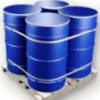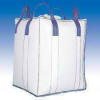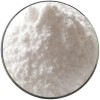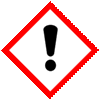| Anmol Chemicals is the pioneer manufacturers of Zinc Pidolate, Pharmaceutical Excipients Food & Flavor chemicals in India. We offer Halal and Kosher Zinc Pidolate made in an ISO9001, ISO22000 (FSSC22000) cGMP and GLP certified facility. Our group has several manufacturing facilities spread across the world, supported by toll manufacturers and representatives in UAE, Europe, Africa, USA, China and has several associated manufacturing facilities spread across India. All the Information on Physics, Chemistry, Applications, Uses and Technology on Manufacture of Zinc Pidolate is in these pages. |
| The units have one or more of the certifications like FDA GMP, ISO 9001, ISO 22000, HACCP, REACH, Kosher & Halal |





Zinc Pidolate SDS of Manufacturers
CAS Number 15454-75-8
TDS of Zinc Pidolate from Suppliers
Zinc Pidolate SDS, Safety Data Sheet
MSDS Sheet 25-Feb-22
1. Product Identification
Product Name & Other Names: Zinc Pidolate or Bis(5-oxo-L-prolinato-N1,O2)zinc.
CAS No.: 15454-75-8
EINECS EC Number: 239-473-5
Relevant uses and uses advised against (if any): Industrial Manufacturing.
Suppliers: As per letterhead.
2. Hazards Identification
GHS, Globally Harmonized System Classification in accordance with 29 CFR 1910
Classification according to Regulation (EC) No 1272/2008
Skin corrosion/irritation Category 2, H315
Serious eye damage/eye irritation Category 2A, H319
Specific target organ toxicity, single exposure; Respiratory tract irritation Category 3, H335
Labeling according to GHS & Regulation (EC) No 1272/2008
| GHS Label Elements  Irritant |
Signal Word: Warning
Hazard statements:
H315: Causes skin irritation.
H319: Causes serious eye irritation.
H335: May cause respiratory irritation.
Precautionary statements:
P261: Avoid breathing dust/fume/gas/mist/vapors/spray.
P280: Wear protective gloves/protective clothing/eye protection/face protection.
P281: Use personal protective equipment as required.
P302+P352 - IF ON SKIN: Wash with plenty of soap and water.
P303+P361+P353 - IF ON SKIN (or hair): Remove/Take off immediately all contaminated clothing. Rinse skin with water/shower.
P332+313: If skin irritation occurs: Get medical advice/attention.
P304 + P340 - IF INHALED: Remove victim to fresh air and keep at rest in a position comfortable for breathing.
P305 + P351 + P338 - IF IN EYES: Rinse cautiously with water for several minutes. Remove contact lenses, if present and easy to do. Continue rinsing.
P308+313: IF exposed or concerned: Get medical advice/attention.
P337+313: If eye irritation persists get medical advice/attention.
3. Composition/Information on Ingredients
Product Name/Synonyms: Zinc Pidolate or Bis(5-oxo-L-prolinato-N1,O2)zinc.
CAS No.: 15454-75-8
EINECS EC Number: 239-473-5
4. First Aid Measures
Always seek medical attention after first aid measures are provided.
Inhalation: If inhaled, remove to fresh air. If breathing is difficult, give oxygen. Get medical attention.
Ingestion: Give copious amounts of water to drink. Never give anything by mouth to an unconscious person. Get medical attention.
Skin Contact: In case of contact, immediately flush skin with plenty of water. Cover the irritated skin with an emollient. Remove contaminated clothing and shoes. Cold water may be used. Wash clothing & Shoes before reuse. Get medical attention.
Eye Contact: Check for and remove any contact lenses. In case of contact, immediately flush eyes with plenty of water for at least 15 minutes. Cold water may be used. Get medical attention.
5. Fire Fighting Measures
Fire: Is is not expected to be a fire hazard, though it is combustible.
Fire Extinguishing Media: Use water spray, alcohol-resistant foam, dry chemical, or carbon dioxide. Use means suitable for extinguishing surrounding fire.
Special Information: In the event of a fire, wear full protective clothing and NIOSH-approved self-contained breathing apparatus with full face piece operated in the pressure demand or other positive pressure mode. At elevated temperatures under fire conditions, it may produce toxic or irritating fumes. Fire-extinguishing work is done from the windward and the suitable fire-extinguishing method according to the surrounding situation is used.
6. Accidental Release Measures
Personal precautions, protective equipment, and emergency procedures: Avoid breathing dust/fumes/gas/mist/vapors/spray. Use individual protective equipment (waterproof boots, suitable protective clothing, safety glasses, etc.). Restrict unprotected personnel from the area. Prevent any contact with hot surfaces. Do not approach facing the wind. Do not touch the spilled material.
Environmental precautions: Do not let the product enter drains, soil, or water sources.
Methods and materials used for containment cleanup procedures and Storage: Contain spilled material. Use a shovel to put the material into a convenient waste disposal container. Finish cleaning by spreading water. Do not let product enter drains, other waterways, or soil.
7. Handling and Storage
Precautions for safe handling: Apply according to good manufacturing and industrial hygiene practices. Ensure proper ventilation. Wash thoroughly after handling. Do not drink, eat, or smoke while handling. Avoid contact with skin, eyes, and clothing. Minimize dust generation. Avoid breathing dust/fumes/gas/mist/vapors/spray. Use individual protective equipment (waterproof boots, suitable protective clothing, safety glasses, etc.).
Conditions for safe storage, including any incompatibilities: Store in cool, dry, and ventilated area away from heat sources and protected from sunlight in tightly closed original container. Keep air contact to a minimum. Do not leave the material container open. Store protected from heat, sparks and ignition sources and incompatible materials like strong oxidizing agents.
8. Exposure Controls/Personal Protection
Airborne Exposure Limits: Not established.
Ventilation System: A system of local and/or general exhaust is recommended to keep employee exposures as low as possible.
Personal Respirators (NIOSH Approved): For conditions of use where exposure to the substance is apparent, consult an industrial hygienist.
Skin Protection: Wear impervious protective clothing, including boots, gloves, lab coat, apron, or coveralls, as appropriate, to prevent skin contact.
Eye Protection: Use chemical safety goggles and/or a full-face shield where splashing is possible. Maintain eye wash fountain and quick-drench facilities in work area.
Other Control Measures: Maintain good housekeeping in work area.
9. Physical and Chemical Properties
Appearance: White crystalline or granular powder.
Odor: None.
Odor threshold: Not available.
pH: Not available.
Relative density: Not available.
Melting point/freezing point: Not available.
Initial boiling point and boiling range: Not available.
Flash point: Not available.
Auto-ignition temperature: No data found.
Decomposition temperature: No data found.
Upper/lower flammability or explosive limits: No data found.
Vapor pressure: No data found.
Vapor density: No data found.
Evaporation rate: No data found.
Flammability (solid, gas): No data found.
Partition coefficient: n-octanol/water: No data found.
Solubility: Soluble in water. Slightly soluble in alcohol.
Viscosity: No data found.
10. Stability and Reactivity
Stability: It is stable under ordinary conditions of use and storage.
Hazardous Decomposition Products: Nitrogen oxides carbon dioxide and carbon monoxide and zinc oxides may form when heated to decomposition. Toxic fumes may be released when heated.
Hazardous Polymerization: Will not occur.
Incompatibilities: Strong oxidizing agents.
Conditions to Avoid: Incompatibles, heat.
11. Toxicological Information
LD50 Oral - Rat - No data found.
Carcinogenic Effects: Not a reported carcinogen by IARC NTP ACGIH OSHA.
Mutagenic Effects: No data found.
Teratogenic Effects: No data found.
Developmental Toxicity: No data found.
12. Ecological Information
Toxicity to fish: No data found.
Toxicity to daphnia & other aquatic invertebrates: No data found.
Persistence and degradability: No data found.
Bioaccumulative potential: No data found.
13. Disposal Considerations
Whatever cannot be saved for recovery or recycling should be managed in an appropriate and approved waste disposal facility.
14. Transport Information
DOT USA, TDG Canada & ADR/RID Europe: Not regulated.
IMDG/IMO & IATA/ICAO: Not regulated.
15. Regulatory Information
USA:
California Prop. 65 Components: Not listed.
Section 16 - Additional Information
DISCLAIMER: The information and recommendations set forth herein (hereinafter "Information") are presented in good faith and believed correct as of the date hereof. It is compiled from various sources, and it is not necessarily all inclusive nor fully adequate in every circumstance. In addition, these suggestions should not be confused with nor followed in violation of applicable laws, regulations, rules, or insurance requirements applicable. This MSDS sheet is intended only as a guide to the appropriate precautionary handling of the material by a professionally trained person using this product. Individuals receiving the information must exercise their independent judgment in determining its appropriateness for a particular purpose.Zinc Pidolate Manufacturers
Anmol Chemicals
S-8, SARIFA MANSION, 2ND FLANK ROAD, CHINCHBUNDER, MUMBAI 400009, INDIA
TEL: (OFFICE) 91-22-23770100, 23726950, 23774610, 23723564. FAX: 91-22-23728264
e-mail: anmolc@mtnl.net.in

Exports to USA, Canada, UAE, Dubai, South Africa, Tanzania, Kenya, Nigeria, Egypt, Uganda, Turkey, Mexico, Brazil, Chile, Argentina, Europe Netherlands, Italy, Spain, Germany, Portugal, France, Malaysia, Indonesia, Thailand, Korea, Japan, etc.
Copyright and Usual Disclaimer is Applicable. 25 February, 2022